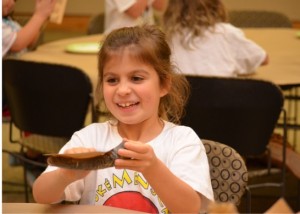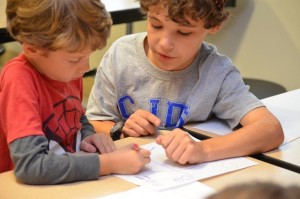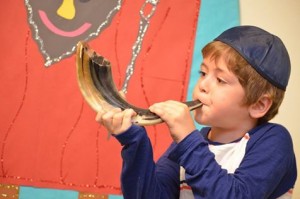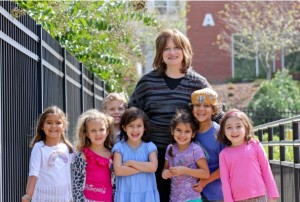
By Smarty guest blogger Mariashi Groner, Director of The Charlotte Jewish Day School
Each year, the autumn ushers in holy days unique to people of the Jewish faith.
The Jewish New Year was observed on Monday, October 3 and Tuesday, October 4. This holiday is called Rosh Hashana (the Head of the Year.) Next week, Wednesday, October 12 is Yom Kippur, the most solemn day in the Jewish calendar. Jewish people call the days from Rosh Hashana to Yom Kippur the High Holy Days.
Rosh Hashanah is a time to pray for a good year, affirm the rule of the Master of the Universe, and to remember where we come from, what changes we should be making, and how to proceed in the coming year. Symbols of the holiday include apples and honey, asking God for a sweet new year and eating round challah bread to symbolize the circle of life. Yom Kippur is an even more serious day, a day of introspection and reflection, forgiveness and determination to transform our behavior. It is a day when the Book of Life is opened in front of God and our future is decided. Fasting from sunset to sundown is one of the ways Yom Kippur is observed. Yom Kippur is the day that we think back on all that we have done in the past year and ask forgiveness from those we have wronged.
At Charlotte Jewish Day School, we realize that it is not easy to pass on a three-thousand-year-old religion and make it relevant for kids. At the same time, it is important that we do not underestimate the children’s ability to grasp deep, spiritual concepts which will stay with them for life.
When it comes to Rosh Hashanah, one may ask about the tradition of blowing the ancient musical instrument known as a shofar, which comes from the horn of a ram. The simple answer is that with the primal sound of the Shofar the Jewish people are called back to their roots, to remind them that this is the time to return to their heritage and to seek the spirituality that they have been gifted at birth. We also blow the Shofar to announce the coronation of the King of the world. The sounds of the Shofar herald the announcement of the King of Kings.
“But why not a trumpet or horn?” one might ask because that could accomplish the same thing. A ram’s horn is used because it reminds us of the time when God instructed Abraham to dedicate his son Isaac to him, and he proceeded to do exactly as God asked until the last minute when an angel stopped him and said, “You don’t have to do it, you can give a ram as a gift to God instead. It was just a test of your faith.” Wow! Do we have that kind of faith? Would we be able to pass that test? Could we try to grow that kind of faith? What does it feel like to have that kind of faith? Have you ever had these kind of conversations with children? It is fascinating.
Finally, the Shofar is not straight, but bent and curved. The Shofar reminds us that as children we sometimes need to bend our
will, our desires, or our wants when someone else needs something more, or when our parents are asking us to do something, or when our teachers need our cooperation. As adults, we must apply these same lessons, to be flexible in our relationships, to adapt to changing circumstances, and to not be rigid in our thinking.
We live in the 21st century. Our traditions, whatever their origin, have to mean something to our children in the here and now. They have to see what it brings to their lives and future. As educators and parents, developing pride and understanding of our traditions is both a responsibility and a great joy.
![]()
Charlotte Jewish Day School

5007 Providence Road, Building E
Charlotte, NC 28226
Phone: 704.366.4558
Website
Facebook
Twitter: @CJDSchool




